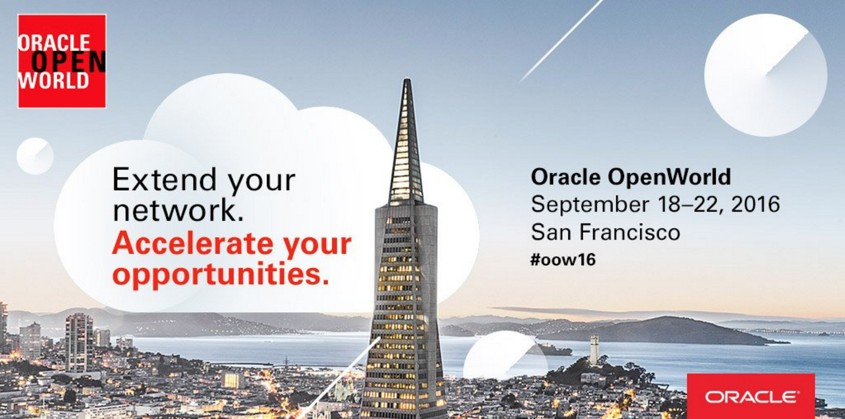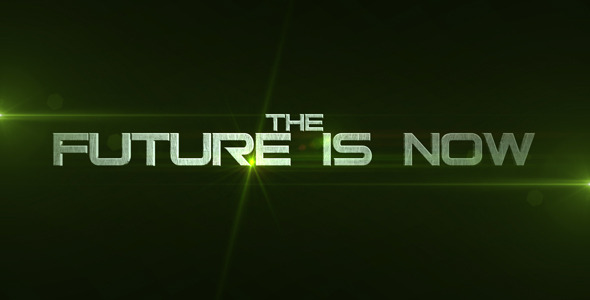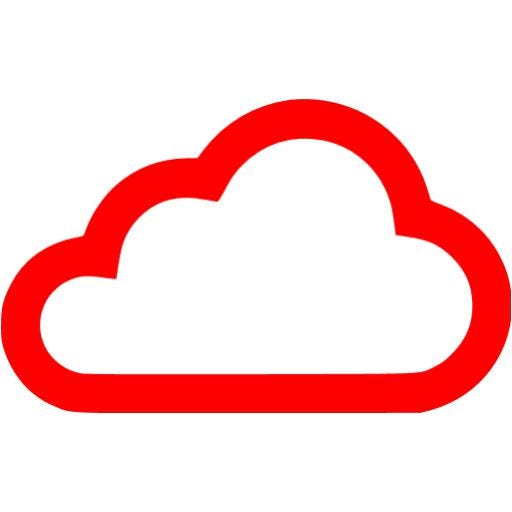
This past week, I had the honor of not only attending, but speaking at Oracle Open World 2016. After a decade of working with Oracle technologies in the data integration, BI & analytics, and big data domains, attending and speaking at this event marked a much-anticipated career milestone on my end.
With >60,000 attendees and >2,200 sessions, the available learning and networking opportunities were infinite. During my time in San Fransisco I attended some of the most curated and informative sessions I’ve ever seen delivered and met scores of new product and industry experts. I reconnected with the amazing posse of speakers and attendees I get to see only a few times a year at various conferences and events. And I finally got to meet some of my colleagues in person that I’d only had the pleasure of working with virtually to that point. All in all, the week could not have been more successful from a learning, networking, and yes, enjoyment, perspective.
The Future Is Now
Big Data. Microservices. Data Visualization. Agile. These topics dominated a huge portion of the OOW16 Session Catalog and spanned existing and new product offerings and their implementation across many industries. In all sessions, the message was clear:

In this future, we move quickly, consume massive amounts of all types of data, and reassess value often. We do this with technologies and methodologies that are continuously expanding and adapting. As businesses, we must expand and adapt with them. How does one support and succeed in such a dynamic environment? There’s a one word answer. Can you guess it? That’s right, the cloud. The cloud isn’t coming. The cloud is here.
That’s right, the cloud. The cloud isn’t coming. The cloud is here.
My five days at OOW16 were like an intense boot camp of sorts, and I can’t wait to start leveraging my take-aways. I wish I could have been multiple places at once so I could have taken advantage of every session offered. I’ve highlighted my favorites below. If you didn’t get the opportunity to check out these sessions at OOW16, speakers often present them at additional events and/or upload their slide decks for later consumption. I highly recommend you seek these particular sessions out if you get the chance.
- Innovation, Big Data, and the Internet of Things with Rich Niemiec: This presentation covers Oracle’s acceleration and the cycles of innovation in the world. It then looks at the current big data revolution and some of the solutions out there, as well as Oracle Big Data. The presentation reviews the role that both Google and Facebook have played in the big data ecosystem and how other NoSQL databases, such as Cassandra and MongoDB, fit in. Also discussed is the Internet of Things, which will drive big data even faster.
- Oracle Big Data Science with Tim and Dan Vlamis: Oracle offers data scientists and those with an Oracle background the opportunity to perform highly sophisticated analytics on humongous data sets without requiring years of specialized study. Oracle Big Data Discovery, Oracle Big Data SQL, and Oracle R Advanced Analytics for Hadoop complement each other exceptionally well and provide an extraordinary capability unmatched by patchwork systems cobbled together. In this session see how to conceptualize and approach analytics common to most every organization and understand which tools to use in what order. And learn how to use Oracle’s most powerful tools for processing massive data sets in Hadoop.
- Big Data and Hadoop for Oracle Database Professionals with Alex Gorbachev and Tanel Poder: The Hadoop ecosystem is a major component of the modern big data stack, and this session focuses on Hadoop design principles and how these principles enable customers to boost the capabilities of their traditional data warehouses, as well as new data processing use cases. The session discusses how modern enterprises use Hadoop, goes through example use cases, and covers some limitations of Hadoop. You will gain an understanding of how modern big data technologies, such as Hadoop, suit various business needs.
- Data Streaming and Analytic Microservices with Stewart Bryson: Although traditional data warehouses excel at sourcing data from enterprise applications, they usually fail at handling the volume, velocity, and variety of new sources of information. Instead of modeling these datasources into a system that does not fit, apply new software design patterns to analytics: microservices. Microservices are small, independent applications — building blocks that provide distinct functionality and are optimized for the task at hand. In this presentation, Apache Kafka is used as the data streaming hub for ingesting data bound for one or more analytic platforms: an enterprise data warehouse; a Hadoop system for batch processing; and lightweight, purpose-built microservices in the cloud or on premises.
- CEO Insight: Get Tangible Results in Healthcare with Oracle Business Intelligence Cloud with Barry Howell, Steven Chamberlin, and Karen Imber: Is it hard for you to get real-time information? Can everyone, from physicians to office staff, see how well the practice is doing? In this session, hear how Arlington Orthopedics does both, and more. Hear how Oracle Business Intelligence Cloud Service combines data from multiple applications (for example, electronic health records, ERP, Google Analytics, and telecommunications) to provide everyone from physicians to office staff the metrics they need to drive the business forward. Learn how to get tangible results in increased charges; improve cost management, collections, and insurance payment analysis; get better insight into patient demographics; enhance scheduling; and track the real impact of marketing campaigns on revenue.
Certifications for Everyone!*
Are you an Oracle Partner? If so, the Oracle Partner Network offers a huge benefit to you at OOW each year via the OPN Test Fest event! During this event, partners can take up to two partner certification exams for free and, if they pass, gain certifications in various Oracle technologies and techniques. At ~ $245/each regularly, this is quite a bargain.
If you wish to take advantage of this offering in a future year, be sure to register early — testing spots fill up quickly. And definitely be sure to study in advance — the exams aren’t easy and truly assess your abilities in your chosen technologies and techniques.
 While at OOW16, I decided to try my hand at the Oracle Business Intelligence Foundation Suite 11g Essentials exam. I’m happy to say that I passed and am now an Oracle Business Intelligence Foundation Suite 11g Certified Implementation Specialist.
While at OOW16, I decided to try my hand at the Oracle Business Intelligence Foundation Suite 11g Essentials exam. I’m happy to say that I passed and am now an Oracle Business Intelligence Foundation Suite 11g Certified Implementation Specialist.
So Nice to See You!
One of my favorite things about attending conferences is getting to meet up with my colleagues who live all over the world. A few times a year, facets of us gather at various events and for just a few days are not only able to learn from each other’s expertise, but also able to let loose and enjoy social events. These conferences have helped facilitate strong camaraderie, and over the years I’ve met people I now consider amongst my greatest friends. And with each conference we seem to pick up a few more “cool kids.”
OOW, being the pinnacle of Oracle-based conferences, seems to bring almost everyone out and is a can’t miss event as a result. OOW16 was no exception. From dueling piano battles to “popular kid” dinners to a Gwen Stefani and Sting concert (yes, seriously!), this one is going to be hard to top!
What’s Next?
Now that OOW16 has come to a close, what’s next on the conference circuit? Submission deadlines for 2017 conferences are quickly approaching and the conferences themselves kick off in early 2017 and go throughout the year, culminating in OOW17. Be sure to get those abstracts in or scoop up your early bird registration rates so that you, too, can be learning from and hanging with the cool kids next year.
- BIWA Summit 2017, January 31-February 2, 2017, Oracle Headquarters. Abstracts due 10/4/2016.
- IOUG, OAUG, and Quest Collaborate 2017, April 2–6, 2017, Las Vegas, NV. Abstracts due 10/7/2016.
- ODTUG Kscope17, June 25–29, 2017, San Antonio, TX. Abstracts due 10/14/2016.
- Oracle Open World 2017, October 1–5,2017, San Francisco, CA. Not yet open for abstract submission.
In between conferences, user groups provide a great avenue for connecting with colleagues and experts, whether it be virtually via webinars or at local and regional meetups. The are many user groups out there, each focusing on on specific area(s) of expertise and/or regions. As a BI and analytics professional, my personal favorites are IOUG, OAUG, and ODTUG. They have plenty of ways to get involved, so be sure to check them out.
That’s All Folks
With that, I leave you to contemplate why it’s essential that you attend not only this conference, but the others I mentioned above, next year. The knowledge gain and networking opportunities offered across a few days simply can’t be matched elsewhere. Whether you present, attend in person, or spectate from afar via virtually streamed keynotes and key sessions, these are opportunities that should not be missed.